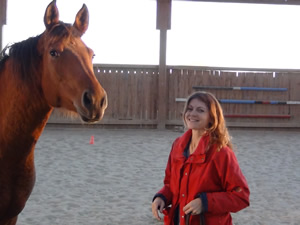 2011 Angel Film Awards - Monaco International Film Festival
2011 Angel Film Awards - Monaco International Film Festival 
THE ANGEL FILM AWARDS HONORING SCREENPLAY WRITERS

|
IN OFFICIAL SELECTION 'FREEDOM OF THE HEART' WRITTEN BY JOLANDA ELLENBERGERBIO: Born in Basle, Switzerland, Jolanda Ellenberger wrote short stories, poems and articles for youth magazines and books from age eleven onward. After her studies on alternative healing methods she went back to writing, studying journalism and communications at the California State University in Sacramento and screenwriting in Zurich, Switzerland. Her writing spectrum includes educational and commercial films, regional TV, auditioning dialogues for actors, radio plays and song lyrics. After raising two foster children, Jolanda has devoted her life to researching with various top-notch experts and people from all walks off life in the United States, Belgium, Germany and Switzerland, to learn about their lands and natural resources for an environmental feature film. During her journey she shot the short film, SEA LEVEL RISING at a Native American sacred site in California. The short film, introducing her public voice, won BEST HUMANITARIAN SHORT FILM at the Angel Film Awards -Monaco International Film Festival in December 2009. Jolanda’s environmental medium length Narrative Film DISPLACEMENT, and her feature length screenplay, “DRIFTWOOD” are further heart beats of her environmental journey. Her love for animals brought her upon her new feature length documentary film THE FREEDOM OF THE HEART on which she is currently working. A story about non-violent ways to work with horses, a topic of great international concern. Logline: It does not take violence or a horse-whisperer to make a horse listen. Synopsis: Horses and human beings have been connected by a special diverse relationship for over 5000 years. Besides their obvious uses in battle, as a means of transport, a source of food, and as working animals, horses have always played an important part in the ancient myths of human culture. Unfortunately, the joy they bring to equestrians of our time gets diminished by increasingly reoccurring violent incidents with horses some of which result in blood traces out of the horses’ mouths. Injuries witnessed by millions while displayed during world class riding competitions caused through torture tools that can stab, pressurize, slice and suffocate a horse, lead global regulators to discuss but not put any stop to the torture. Instead they debate on how much blood may be seen until disqualifying a contestant. How much blood. ANDRÉ P. UNKAUF (Horse Trainer): “If a superior would try to oppress me I would know there is fear behind it. If I am working for a boss and our relationship is based on trust and not dominance, I do anything for my superior. We humans are carnivorous, hunters. Horses are vegetarian and flee. In order to make them come toward us and not run away is already quite an accomplishment. ”The fine line between consequent handling and violent treatment of the horse often gets blurred. Just like with humans, force on force and violence on violence results in more force and more violence. Whether out of ignorance or due to purposeful violence, the outcome is a negative downward spiral leading to disturbing situations. REGULA NICOLET (Free Dressage Trainer): “Horses do not need nor want anything from us. We humans do want something from the horse.” Therefore, in the keeping and use of horses, we humans have got a choice: we can treat these wonderful animals with patience, understanding and knowledge and make them our partner. Alternatively we can train them in a way that results in defensive gestures or submissive behavior which makes them lose their grace and elegance. Horses do not have a choice of which person they will be formed through the keeping and treatment. Depending on the circumstances the animal can rise to be a co-worker and friend out of free will or it can become a distrusting, broken and revolting horse or even an enemy. FREDDY KNIE JUNIOR (Swiss National Circus): “People who say horses are stupid because they flee annoy me greatly. “In order to join up with a horse, man needs to be aware of what a horse is. What do they need in the wild to ensure survival? How do they behave in a herd, their social environment where they have to find their social rank and task? And what does it mean for a horse to orient itself around humans, alongside its herd, its natural family? What do we expect and ask from horses? If stallions are rough with one another to fight for their ranking to own a herd and mares sometimes discipline their offspring quite cruelly, will a horse understand a man’s motives of roughness knowing we are a different kind of being? How can we communicate in the kindest way that we want partnership with the horse? How can we achieve the desired results without applying force or violence? And how can we not only take from horses, but also bestow them with the knowledge that they are safe with us humans? RUEDI VON NIEDERHÄUSERN (Swiss National Stud HARAS): “When we left the stallions together on the same pasture for the first time we had to closely observe them. Drawing from history sexually mature stallions together on the same meadow have been a no-go.” This documentary will show rarely seen film footage of stallions put together on a pasture fighting for their rank then grazing peacefully next to one another. We will also see highly trained free-dressage horses in a circus immediately switching back to their natural stallion hierarchy behavior the moment their trainer leaves the arena. Special people of different ages and walks of life who understand the natural needs of horses and have found ways of harmony and joy with them will let us in on their wonderful journey of magical togetherness with the powerful yet graceful sensitive beings called horses. |